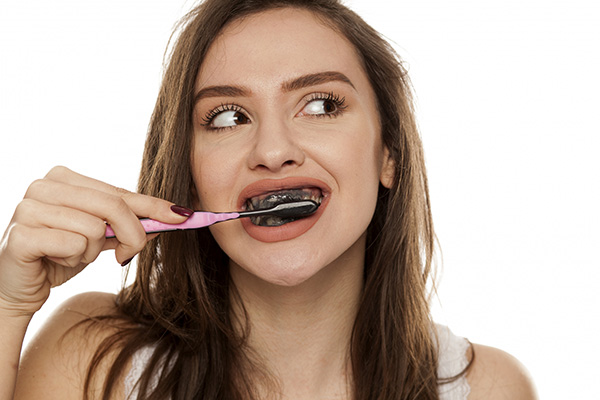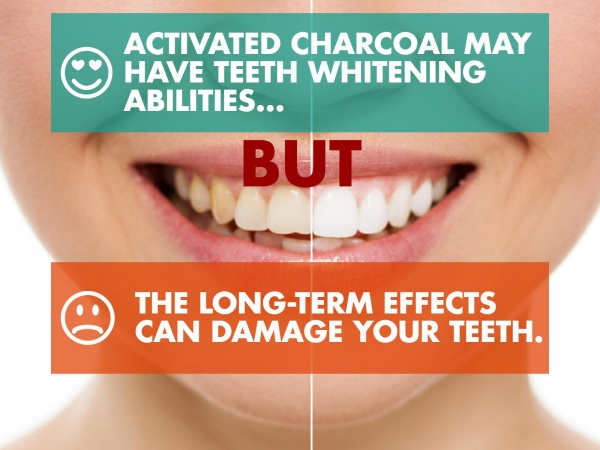Nearly everyone aims to have a bright, white smile that portrays youth and vitality. There are various professional teeth whitening options available that can help you achieve the smile of your dreams. However, there are other at-home teeth whitening remedies that are gaining popularity, such as the use of charcoal. It’s important to know the risks of this natural, at-home teeth whitening trend so you can help protect and maintain your healthy smile.
What is Activated Charcoal?
Activated charcoal is processed at extremely high temperatures, making it more porous than other types of charcoal. Typically containing charred bones, the shells or pits of certain fruits, coal, sawdust, or petroleum coke, activated charcoal has documented medical benefits for gut health. When consumed orally, activated charcoal absorbs toxins and chemicals, preventing them from being absorbed by the body. Due to its ability to attract toxins and chemicals, activated charcoal is commonly used in cases of poisoning.
Alternative healthcare professionals and bloggers have long touted the benefits of activated charcoal in gut health, particularly for acute treatment. But in recent years, some of these same professionals have begun to encourage its use as a tooth whitener as well – and this has a number of dentists concerned.
Is Activated Charcoal Good for Teeth?

In studies, activated charcoal has shown mixed results at best. Some anecdotal evidence suggests it may be about as useful as any abrasive ingredient at removing stains from teeth. Unfortunately, the minor benefits offered by activated charcoal are well overshadowed by its high potential for irreversible long-term damage.
Fortunately, the benefits offered by activated charcoal are far from unique. In fact, you can get the same benefits by brushing with a whitening toothpaste, reducing your intake of dark foods and beverages, and following other steps to reduce staining. Water, for example, when consumed regularly throughout the day is one of the best ways to prevent staining.
No. Activated Charcoal is Not Good for Teeth
Charcoal is an extremely abrasive substance. When used as toothpaste, it can work its way into the inner layer of your teeth, called the dentin, ultimately damaging and removing enamel over time. In this way, activated charcoal actually works to yellow your teeth. Dentin is yellow in color and once exposed it cannot be treated with whitening products. The only way to address enamel damaged by charcoal is expensive cosmetic dentistry options like porcelain veneers.
Other long-term effects associated with using charcoal as a teeth whitening agent may include:
- An uneven, blotchy appearance
- Teeth are susceptible to deterioration and erosion
- Gums and teeth become vulnerable to infection
You may lighten your teeth some, for a short period, with regular use of activated charcoal, but long-term use will likely damage teeth, cause irreversible yellowing, and lead to more involved cosmetic treatments.

A Better Option
Instead of opting for a teeth whitening solution that delivers inconsistent results while putting the health and beauty of your smile at risk, the dentists at DeWitt Dental Associates encourage you to learn about our professional teeth whitening solutions. We offer both in-office and take-home tooth whitening kits that actually work to lighten the shade of enamel and will not compromise the health of your teeth and gums. Better yet, results can be maintained with routine brushing and biannual visits to our Cherry Creek office for cleanings and examinations.
To fully determine which professional teeth whitening procedure is right for you, our experienced team will meet with you in person to discuss your oral healthcare goals and needs. Together, we will work to formulate your personalized treatment plan to help you get the smile you want to achieve.
If you are in the Denver area and would like to learn more about your teeth whitening options, give our office a call at 303-321-5656 to schedule your initial consultation.
